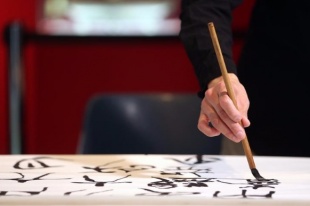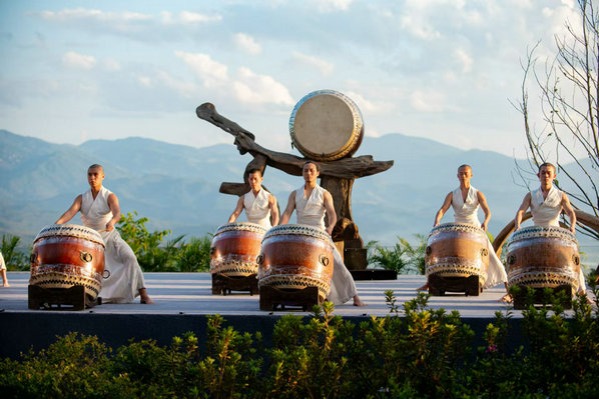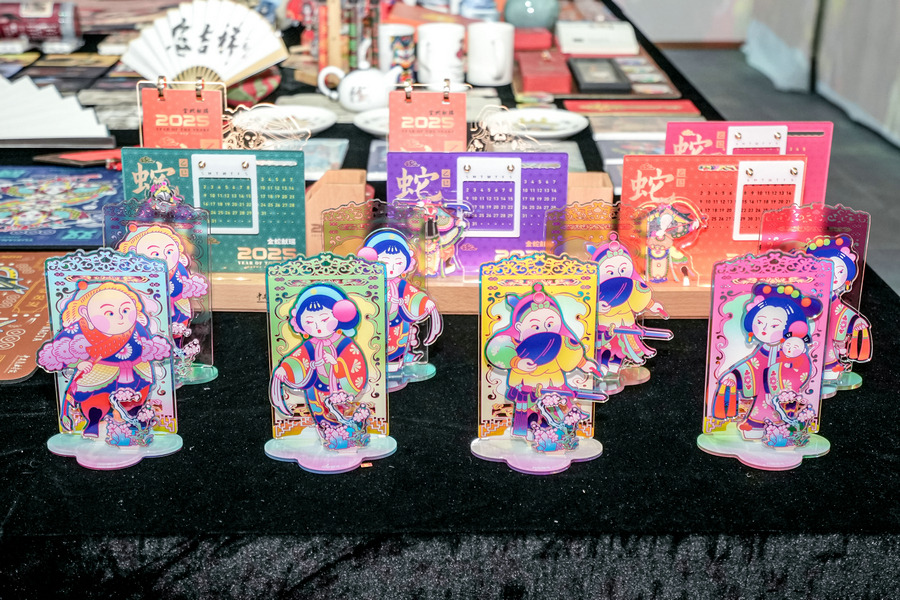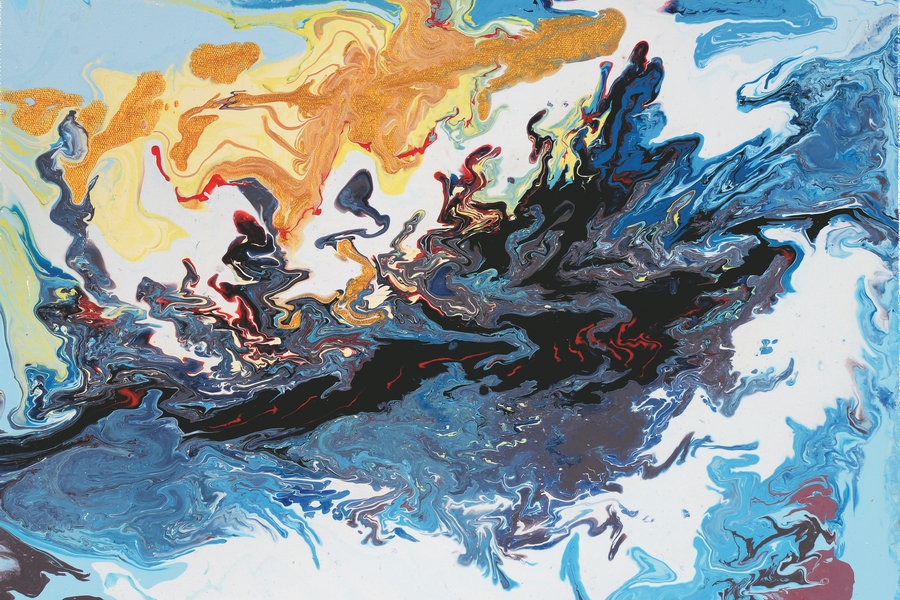Traditional Chinese arts introduced to Athens Acropolis Museum

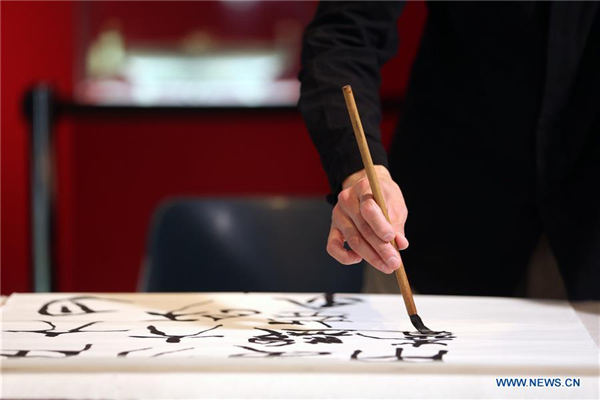
"I am surprised when I am writing, some of the visitors know so much about Chinese culture and they can tell what I am writing. It is amazing," he said.
For his part, Dr. Yan improvised in his painting with free hand skill and ink-wash just as the literati painters did, with various subjects such as colored landscape and flowers.
"I have performed similar paintings just like we have here exhibited on display in the museum. I depicted yesterday a landscape of China and I will paint another landscape in north China. They have similarities, but you can see the differences between the landscapes from the north and south. I used special techniques to depict different kind of rocks in the landscape," Dr. Yan explained.
Chinese painting is an art, which has a deep-rooted tradition and a unique style, employing a "dots and lines" structure and the writing brush, ink stick, silk and Xuan paper as the main tools.
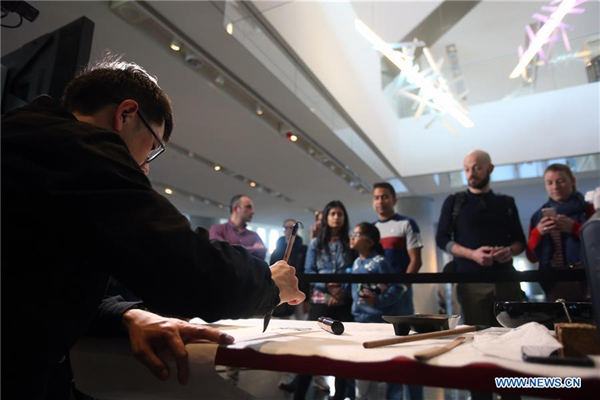
In the spirit of exchange, two exquisite objects from the Acropolis Museum are being exhibited at the Shanghai museum up until April 8.
The two antiquities loaned are a marble statue of a Kore (520-510 BC), one of the most beautiful and well-preserved sculptures of the Acropolis, which retains traces of its archaic colors, and a red-figure basin lid with a Dionysian scene (350-325 BC).
"We have sent to Shanghai two masterpieces from the Acropolis Museum and we sent also two conservators to present there the way the ancient Greeks worked with marble, how they made sculptures. This was realized with great success," Pantermalis said.
"In the future, we prepare a major exhibition with a special theme with some very personal objects of the Emperor Qianlong. They are now in the Forbidden City and we will present these pieces in the fall this year in the Acropolis Museum," he said.


